In the world of jewellery design in South Africa, Karin Rae Matthee is a young entrepreneur with a vision, a unique design and creative aesthetic, and a deep commitment to skills development and upliftment in her community.
A visit to South African entrepreneur, Karin Rae Matthee’s Dear Rae Jewellery studio and co-located retail store in Cape Town, is quite an experience, as she believes in showcasing the creative design and manufacturing process to her valued customers. Her exquisitely designed jewellery pieces in various precious metals, diamonds and semi-precious stones, are all lovingly hand-crafted in the studio under the watchful gaze of customers in the store.
LoA recently got to meet with Karin to talk about her entrepreneurial journey.
Tell us how you got started in business
I have always been interested in creating 3D objects, and when I was a kid, my Dad taught me how to make jewellery as it was his hobby. From around the age of 10, I started sawing out shapes to make into jewellery pieces. So, when it came the time to think about what I wanted to study, I decided on jewellery design at Stellenbosch University in South Africa. It was a great programme there, and I also managed to study in Germany, just outside Stuttgart for a semester, which was probably around the time that I decided I wanted to start my own business. My study time in Germany had a big influence on me, seeing what was available out there and being exposed to more international design and ways of thinking. I also realized that there was still very much a raw energy in Africa, and I wanted to come back home to start my own business there instead of overseas. But my international trip was definitely the trigger for that idea.
"....a place like Cape Town attracts lots of tourists, and they want to buy items that are actually designed and crafted here in the country. In the business, we employ people locally and that is a big part of our idea behind the studio and the store."
Whilst studying, did you learn much about entrepreneurship and starting a business?
To be honest, not really, the University was very much focused just on design, technical work, art history, etc, so all the academic elements but not really anything on business. So in fact, I also took a business course after I finished my degree, which although was quite basic, it equipped me to deal with all the various elements of setting up and running a business at a practical level. My father has always been in business so he has always been an inspiration and a practical source of help.
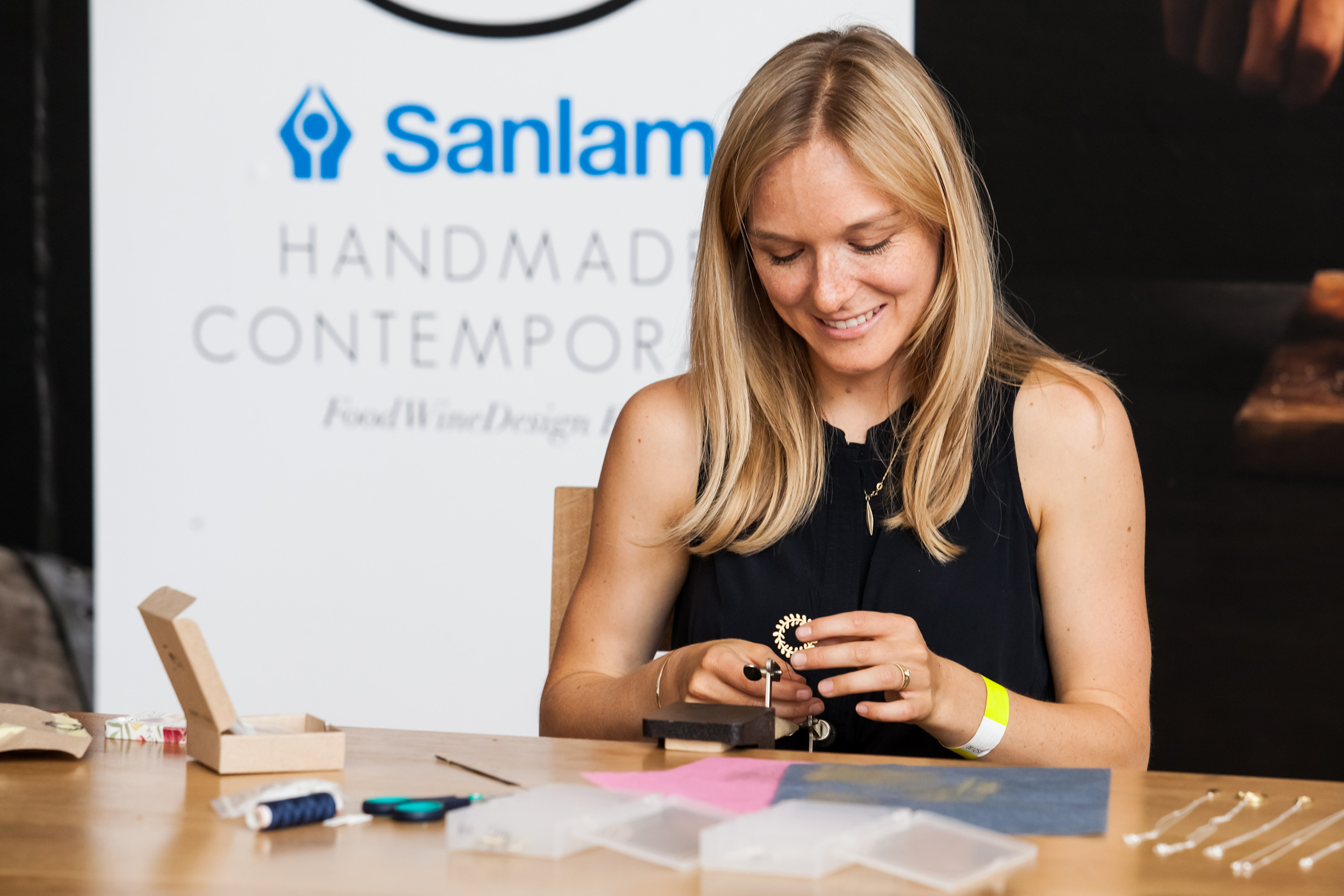
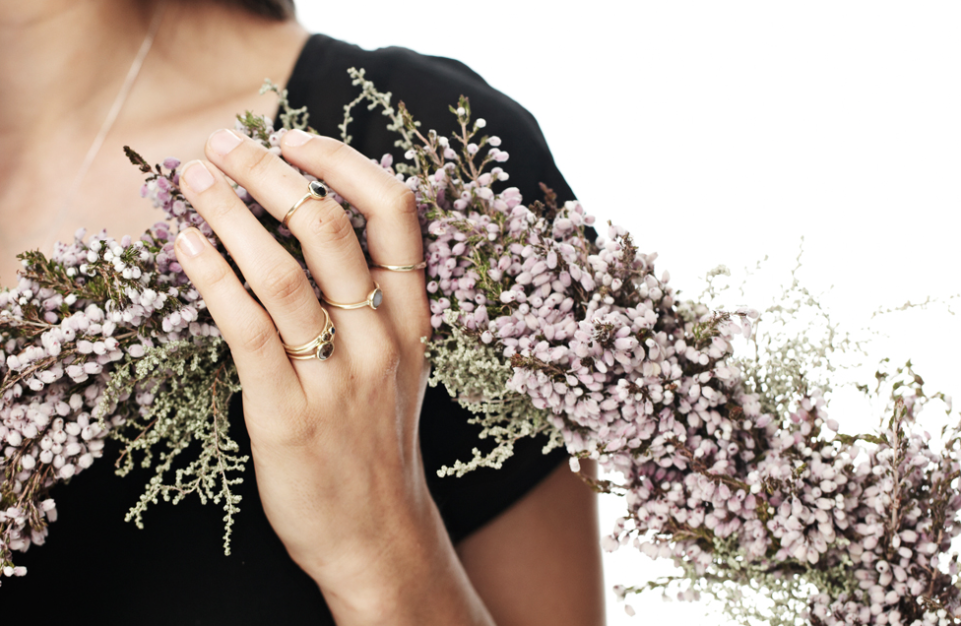
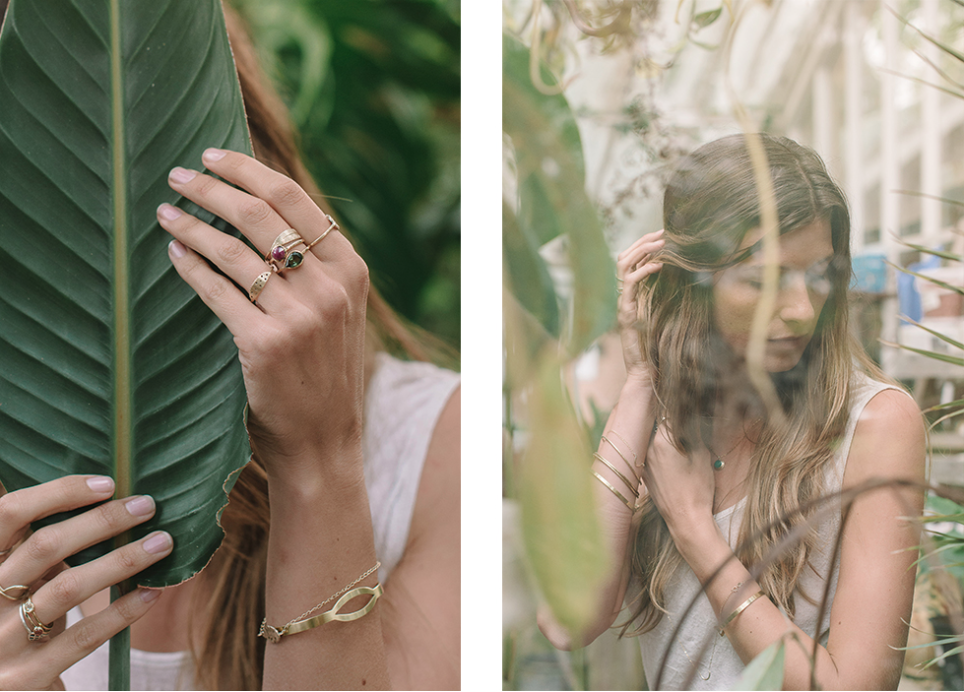
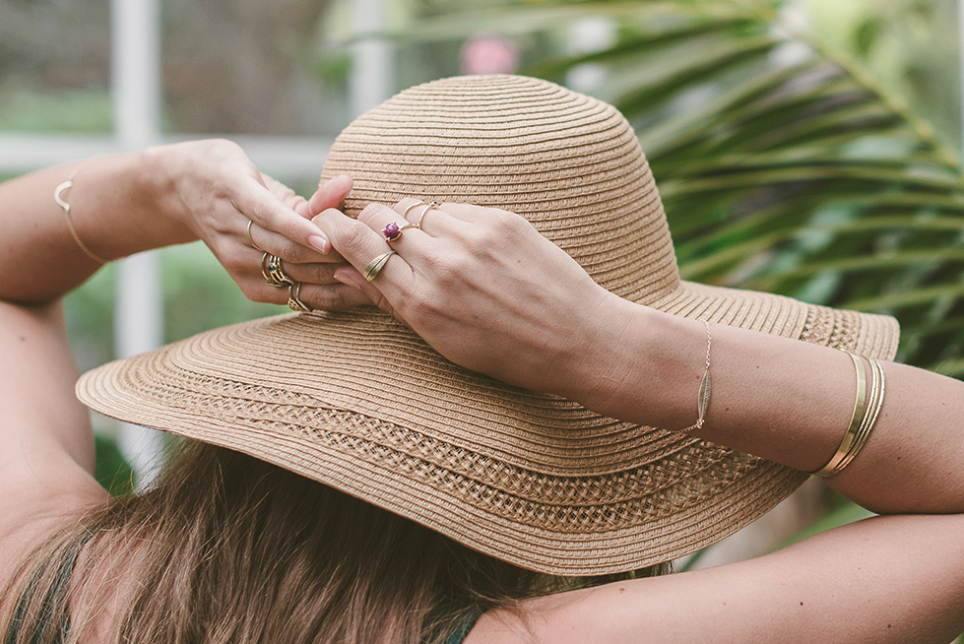
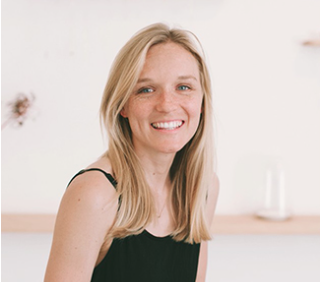

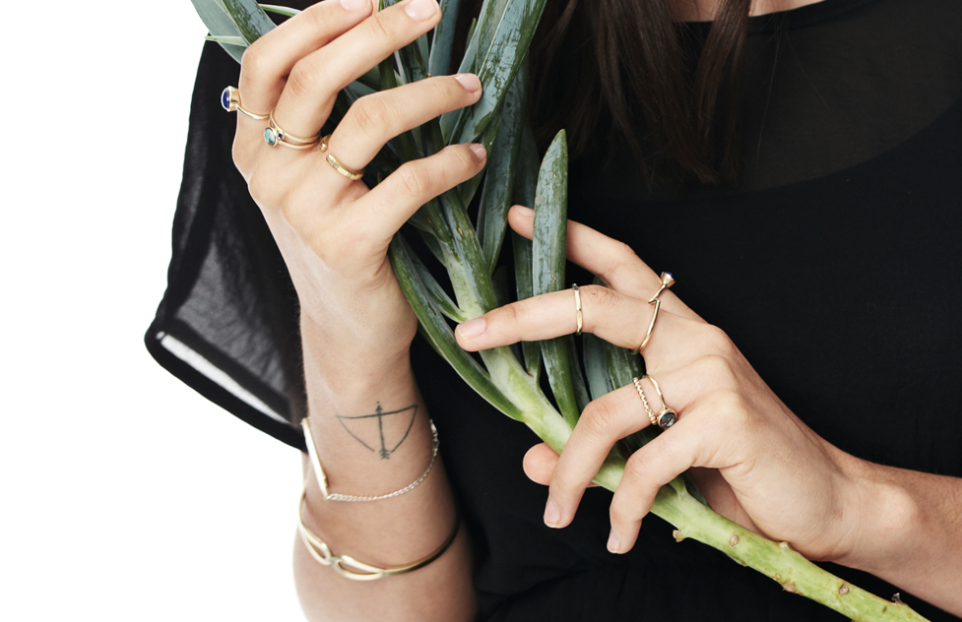
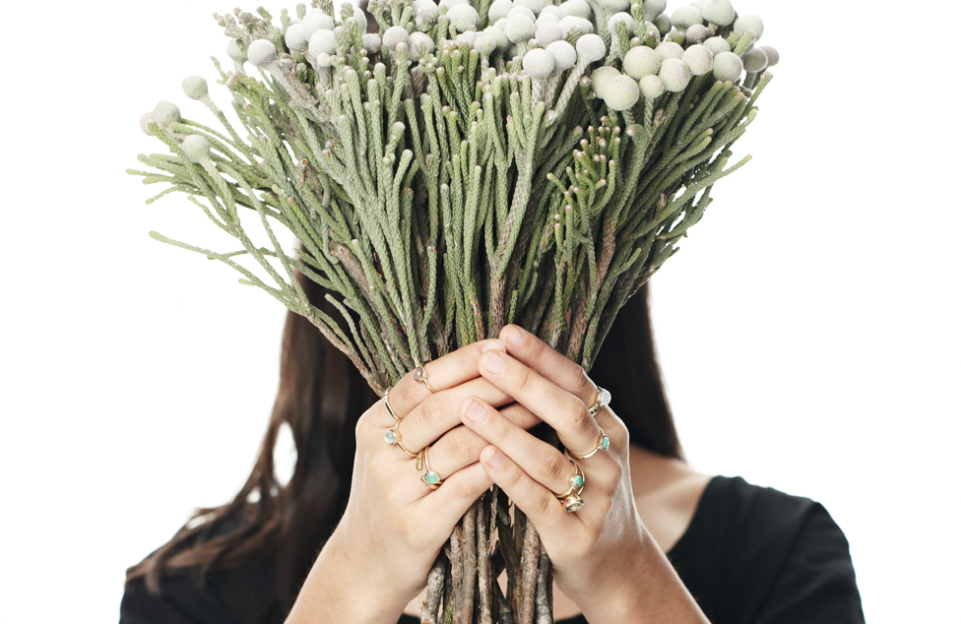
Tell us a little about your business, Dear Rae Jewellery
In my business, which started in 2011 formally, I decided to create an everyday range of jewellery in silver and brass, which is more affordable and easier to make. I felt this would be a good way of getting people to know the brand and be able to afford to buy jewellery that they could wear every day and really enjoy it. It also fits into the affordable gift bracket. I also created a luxury range using gold, diamonds and semi-precious stones, for those people that like the brand, like the design approach, and feel comfortable about buying the more luxury pieces. In addition to these two ranges, I also have a commission service, where I create bespoke engagement rings for clients. This particular design aspect of the business started over time when existing clients started asking me to design engagement rings because they had already bought pieces from me previously, liked my design style, and wanted to have their engagement rings designed specifically for them. So, this part of the business has been built up over time. It has been an interesting process because, being young it was intimidating getting into the diamond industry in the first instance, but I have enjoyed the journey and building this part of the business. I now have another girl who works with me on designing and manufacturing the engagement rings.
Karin at work in her studio
"The ethos was to encourage people to buy locally crafted jewellery that they actually see being made here in South Africa, as opposed to imported pieces that are manufactured elsewhere in the world."
How do you market and sell your jewellery to customers?
We have a design studio and also an online shop and we are based in Woodstock, Cape Town. The concept behind the studio is that we have a glass window section which allows visitors to see the jewellery being made, as part of the shopping experience in the retail store. The ethos was to encourage people buy locally crafted jewellery that they actually see being made here in South Africa, as opposed to imported pieces that are manufactured elsewhere in the world. This is particularly important in a place like Cape Town which attracts lots of tourists, and they want to buy items that are actually designed and crafted here in the country. In the business, we employ people locally and that is a big part of our idea behind the studio and the store. Also, that people see the seamless integration of the manufacturing of the jewellery pieces and the selling process.
What are the challenges you have experienced in your manufacturing process?
Jewellery is obviously a luxury commodity, with many luxury brands in the market, but from a personal perspective, I wanted to give meaning to the creative and manufacturing process. I wanted to provide employment and training opportunities to the previously disadvantaged in the local area within the business. I personally feel one of the biggest challenges in the country is that there is a lack of training and education for the most disadvantaged in our communities, and therefore that leads to a lack of employment opportunities also. So, initially when I started in the business, I trained up two previously disadvantaged people, a husband and wife. The husband had experience of creating and designing in South African wirework, so he was naturally good at his craft. As a team, they both caught on really quickly and it is amazing to see how they have grown over the past three years in the business and how much they have accomplished. As a result of their work and their creative efforts in the business, they have recently been able to buy a house for the first time, so their lives have changed so positively through their time in the company. It has been wonderful to see. I also have four other girls who work with me, but they have all achieved their tertiary educations. I think it is important to integrate everyone in the business, from all walks of society and with all types of backgrounds. This can be challenging at times from a cultural mix perspective when you are trying to get everyone to integrate successfully. It requires lots of communication, lots of joint meetings, lots of cooperation and a willingness on everyone’s part to meet halfway on any issue or challenge. I am very passionate about successfully integrating all our different cultures together in the business. I grew up in a multi-cultural school and community environment, and my parents also proactively pushed this integration a lot during my early years, and my passion today stems from this experience.
Do you still do all the design and conceptualization work yourself these days?
Yes, when we design a new range, I will create the original concepts and the prototypes – I love working at the bench still. But I only have time to do the first stage designs these days, together with the samples of each design, although I still design engagement rings because I love the work. I then train my team on how to make each individual jewellery piece. So, that is how the business of design and manufacture works at the moment.
How do you practically balance and manage both the design process and the actual business?
It is challenging, and I tend to be everywhere all the time, and perhaps not managing all the aspects of the business as thoroughly as I would like at the moment. But I have now employed a girl who is running the social media side of the business and managing our online retail store, which is quite a big operation. This is an important part of the business accounting for around 40% of sales, and 20% of which is international (predominantly to the US and Europe), and provides a customer connection with the brand outside of the studio and store. This also gives me time to manage the manufacturing, and manage the actual design process, which is really important.
Do you see your business becoming more export focused in the future?
Yes, I am really interested in pursuing that aspect of the business. But then again, at a practical level, I don’t yet know how to do it. I have had a few exploratory meetings with the export advisors in the relevant government departments, but there has been no real help in this regard yet. However, I think this will be a key focus for the business this year, to try and investigate the export process and potential in more detail. Maybe it means me going overseas myself and just making some interesting and useful connections. Basically, if you have a strong brand, it is about making those connections yourself.
Over the past three years, what have been the main challenges you have faced in the business?
I would say managing people has proved to be the main challenge, having to deal with the various personalities in the business, whilst at the same time ensuring that the business is well managed, makes money, and is ultimately sustainable. The hard part has been balancing all of that. Also, just figuring out what my vision and mission is for the business going forward. It is sometimes hard when you are doing so much and you are so busy to keep focused on the vision for the company, yet it is so important. So, I have been taking time to just slow down and take the time to think and ensure the vision is right. You can’t really lead the company forward without that vision. Because I started out in business sitting at a work bench making things, and without anyone helping me in those early days, instead of the team that is working with me today, I am conscious of the need to ensure that everyone knows where the business is going and that they are going to be able to grow with it.
What gives you the most satisfaction as an entrepreneur each day?
As corny as this may sound, it is actually about creating the jobs, educating and training people, and seeing the difference your business can make to people’s lives. It is that team essence of the business, and the knowledge that by working together, we can achieve the impossible and achieve the rewards from our efforts.
"....managing people has proved to be the main challenge, having to deal with the various personalities in the business, whilst at the same time ensuring that the business is well managed, makes money, and is ultimately sustainable. The hard part has been balancing all of that."
The creative team at Dear Rae Jewellery - Top: Karin, Maryke and Amy. Bottom: Raymond, Rachel, Morgan and Cecilia.
What has been the highlight of your entrepreneurial journey so far?
I think opening up my own store and my own design space, and being able to express myself from a design perspective and see people enjoying my brand in my own space. Also, having the opportunity to exhibit my vision of having manufacturing right next to retail, seeing that vision come together, and being able to engage with my customers in that space, has been the biggest highlight of my entrepreneurial journey so far.
What entrepreneurial advice do you have for other women?
I think there is a lot of copying and insecurity in the creative industry, so people often aren’t secure enough to follow what they have designed and be comfortable with who they individually are. I would advise them to stop looking at Pinterest and other people’s design blogs and actually focus on who they are as designers and creative people, and that is where the individuality and uniqueness lies. From there you can go on to create products that are needed in the world and that people can enjoy, and customers will appreciate the authenticity of your brand and your products.
Find out more about Dear Rae Jewellery - Website Facebook Twitter Instagram
Why LoA loves it….
At LoA, we really love what Karin Rae Matthee is doing to build the dear rae jewellery brand, and not only are her design pieces simply exquisite and really unique from a design perspective, but her entrepreneurial ethos is based on integrity and authenticity. This is a jewellery design brand that is destined for great things in the future – watch this space. --- Melanie Hawken, LoA founder and editor-in-chief



